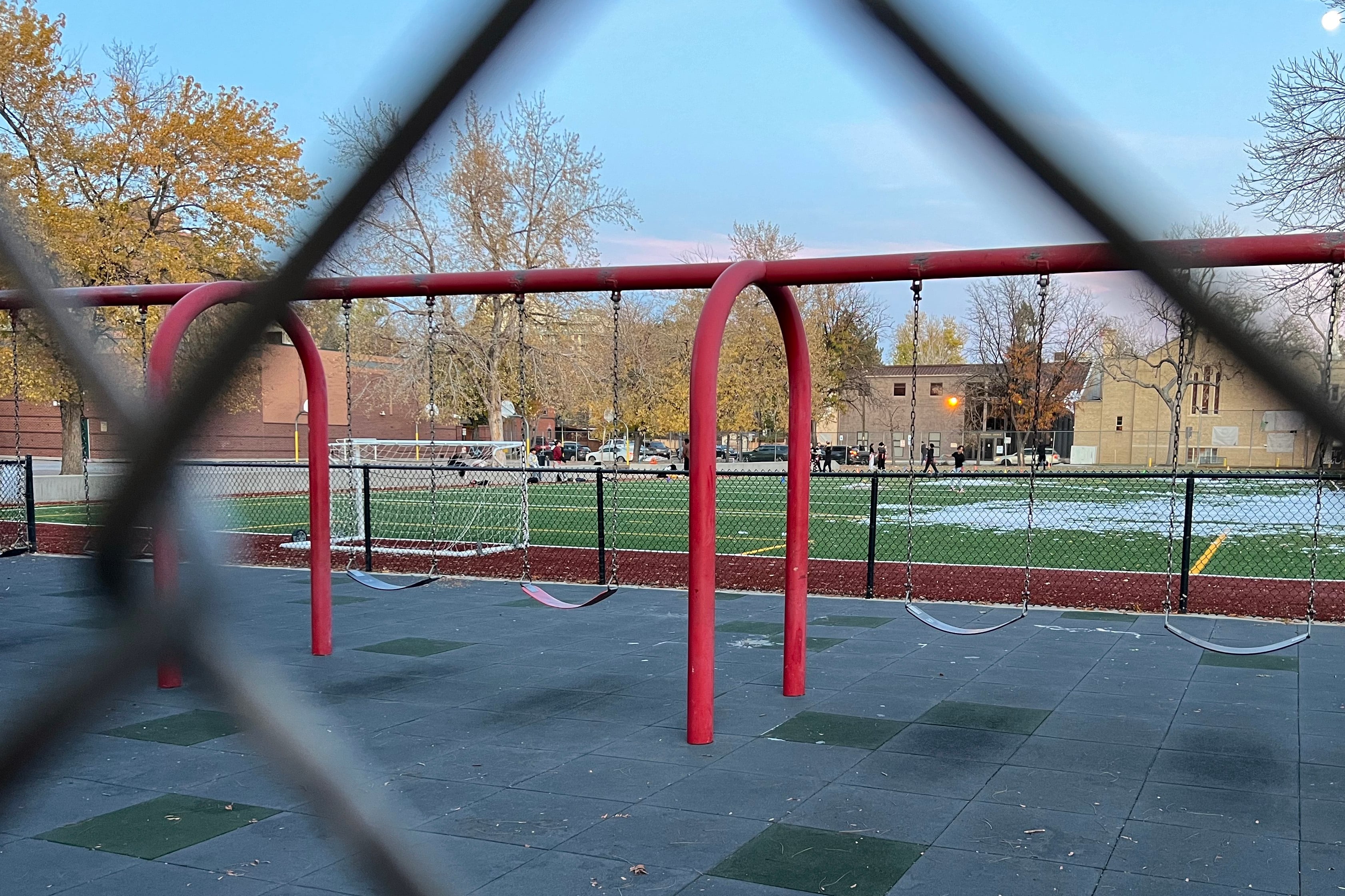Sign up for Chalkbeat Colorado’s free daily newsletter to get the latest reporting from us, plus curated news from other Colorado outlets, delivered to your inbox.
No more Denver schools will be closed or consolidated for low enrollment until 2030 after the school board amended its policy Thursday to add a four-year closure pause.
But the pause isn’t an all-out ban. The amendment allows a school closure proposal to be brought forward “if there is a substantial shift in student enrollment, funding levels, or an unexpected emergency as determined by either the Board or the Superintendent.”
Superintendent Alex Marrero also recently enacted a policy that allows schools to be closed for a different reason: persistently low student test scores.
Seven Denver schools closed earlier this month after the board voted in November to shutter them due to declining enrollment. The board also voted to partially close three more schools, which means those schools will have fewer grade levels in the fall.
“I think our communities need a break and they need some time to heal from this closure process that we just experienced,” said board member Xóchitl “Sochi” Gaytán.
Denver Public Schools is predicting its enrollment will decline by 8%, or 6,005 students, by 2029, according to the district’s annual Strategic Regional Analysis report released last week. The report says more enrollment-based school closures would likely be needed by 2030, particularly in the northwest, southwest, and central parts of the city.
Barring any emergencies, the amended policy will prevent such closures in the 2025-26, 2026-27, 2027-28, and 2028-29 school years. The board could vote on another round of closures in 2029, and additional schools could shutter at the end of 2029-30.
The amendment passed in a 4-2 vote Thursday. Gaytán voted for it, along with board President Carrie Olson and members Scott Esserman and Michelle Quattlebaum.
Supporters said a pause was needed to provide certainty and a timeline to students, families, and staff at schools that may be at risk of low enrollment and closure. The idea for a school closure pause came from the community, they said.
“At the center of this we cannot forget that we’re dealing with human beings that have to process what we’re doing,” Quattlebaum said, “and if they’re asking for clarity, for assurances on how we will move forward, why are we not honoring that?”
Board Vice President Marlene De La Rosa and member John Youngquist voted against it. Member Kimberlee Sia was absent.
Youngquist said the amendment was unnecessary because it includes both a prohibition on closures and a way around it, which he said “is the same as adding no language at all.”
De La Rosa referenced the prediction that DPS will lose 6,000 students by 2029 and said the amendment was a “false promise to our community that we know we cannot keep.”
Thursday’s vote was the second time the board considered pausing school closures. Last month, the board deadlocked 3-3 over a proposal for a three-year school closure moratorium.
Quattlebaum was absent from last month’s meeting, which resulted in the tie vote. A majority of the seven-member board must approve any policy change.
A majority of the board had to override its procedural rules Thursday in order to reconsider the amendment a month after it failed. The board also had to change the proposed language, which Esserman said was why the pause period was increased from three to four years.
The seven schools that closed earlier this month were Castro Elementary, Columbian Elementary, Palmer Elementary, Schmitt Elementary, International Academy of Denver at Harrington, West Middle School, and the Denver School of Innovation and Sustainable Design.
Kunsmiller Creative Arts Academy, Dora Moore ECE-8 School, and Denver Center for International Studies partially closed and will reopen with fewer grades in the fall. Kunsmiller will go from a K-12 school to a 6-12 school, Dora Moore will become an elementary school only, and DCIS will shrink from a middle and high school to solely a middle school.
About 1,100 students were affected by the closures. District data shows that half of the displaced students will go to higher-performing schools next year, and a significant number are moving from district-run schools to charter schools.
DPS is in the process of deciding what to do with the shuttered school buildings.
Melanie Asmar is the bureau chief for Chalkbeat Colorado. Contact Melanie at masmar@chalkbeat.org.







